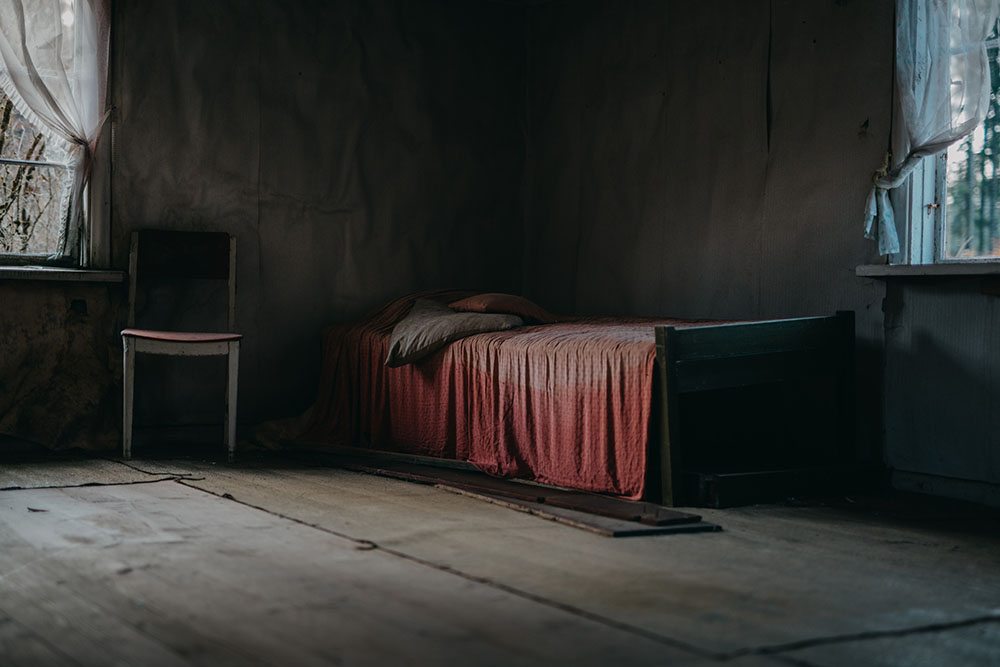The social significance of furniture can be seen everywhere: adverts from Dfs and Ikea have been a near-permanent fixture on our tv screens for years, while many of us covet designer rugs and luxury leather chairs in interior design magazines. Tables, chairs, bookcases and beds serve more than their intended functions, allowing us to participate in wider society.
But what about those of us who, through no fault of our own, suffer from a lack of furniture and cannot afford to buy any? Experts say that owning essential household items is important for people’s dignity, self respect and happiness.
Furniture poverty is defined by the End Furniture Poverty charity as “the inability to access, or afford to buy or maintain any household furniture or appliance item that is essential to achieve a socially acceptable standard of living.”
It is seen as a sliding scale, with ‘furniture insecurity’ being when a household does not have the money needed to replace any essential item if it breaks. While ‘furniture destitution’ is when a household has none or very few of the basic items needed.
Data from the Poverty and Exclusion project shows that in the past 30 years, the number of adults who are unable to afford household goods seen as necessities has risen dramatically. In 1990, 6.5 million people could not afford one or more essential items, but in 2012, 12 million were reported to have the same issue.
“It’s not just a table and chairs, it’s the time we spend together”.
Shannon Gabbert, Centre Manager of St Vincent’s Sheffield, a furniture poverty charity, told the Sheffield Wire that media attention was focused on certain types of poverty. She said these were often those that were more visual, such as homelessness, and examples where the general public could relate their own experiences, such not being able to buy food.
She said: “People have a better understanding of things like fuel poverty, where you can’t afford to heat your house, they also understand food poverty – everyone knows what being hungry feels like – furniture poverty is a bit different.
“Most of us have grown up in a home where we have all the essentials we need, but there are some people who have nothing”, she said.
“It means that someone can’t have a functional home, which has a massive impact on their day-to-day life”.
Not only do those entering social housing suffer from furniture poverty -only two per cent of social housing is let as furnished, according to the End Furniture Poverty campaign – but research from the Poverty and Social exclusion project found that around 14 million people in the UK could not afford one or more essential household goods. These included basic items such as a washing machine, table and chairs, a phone and curtains.

Furniture poverty is a big problem in the UK. Credit Unsplash
The End Furniture Poverty campaign details the multitude of health issues furniture poverty can bring, such as a lack of a cooker to prepare food or a fridge to store it leading to unhealthy diets. Also, not having a proper bed will mean poor sleep, affecting a person’s ability to live and work.
This is a huge amount of people to suffer not only the practical implications of not having access to essential items, but also the element of social embarrassment and exclusion this will bring with it. Would you feel comfortable inviting people round to your house if they had nowhere to sit?
Current events such as the pandemic, the end of the universal credit uplift and the rise in inflation will likely have contributed to the number of people suffering from furniture poverty, although the full extent of this is not yet clear. 38% of people in the UK have struggled financially due to Covid-19, with one in five unable to prevent their home falling into disrepair, according to Ryobi.
Ms Gabbert said: “The majority of people we are dealing with now are not those who have moved into unfurnished social housing, but those who are dealing with a change in financial circumstances, where they cannot afford to replace essential items that have broken”.
According to Ryobi, hundreds of pieces of good furniture and household items are thrown away every day, which Ms Gabbert says are exact the kind of items charities such as St Vincent’s are looking for.
Testimonies from the organisations 2019/2020 Impact Report demonstrate the importance of household items in people’s lives. A mother who received a dining table and chairs said: “It’s not just a table and chairs, it’s the time we spend together”.
“It’s all about giving people self-worth through our work”, Ms Gabbert said. “If you give someone a stained mattress or battered furniture, they’re going to feel like they have no worth, because the stuff you’re giving them has none either’.
“You want to give those in need a message that they are worth investing in. It’s a huge psychological boost, it gives them the tools to help themselves”.




